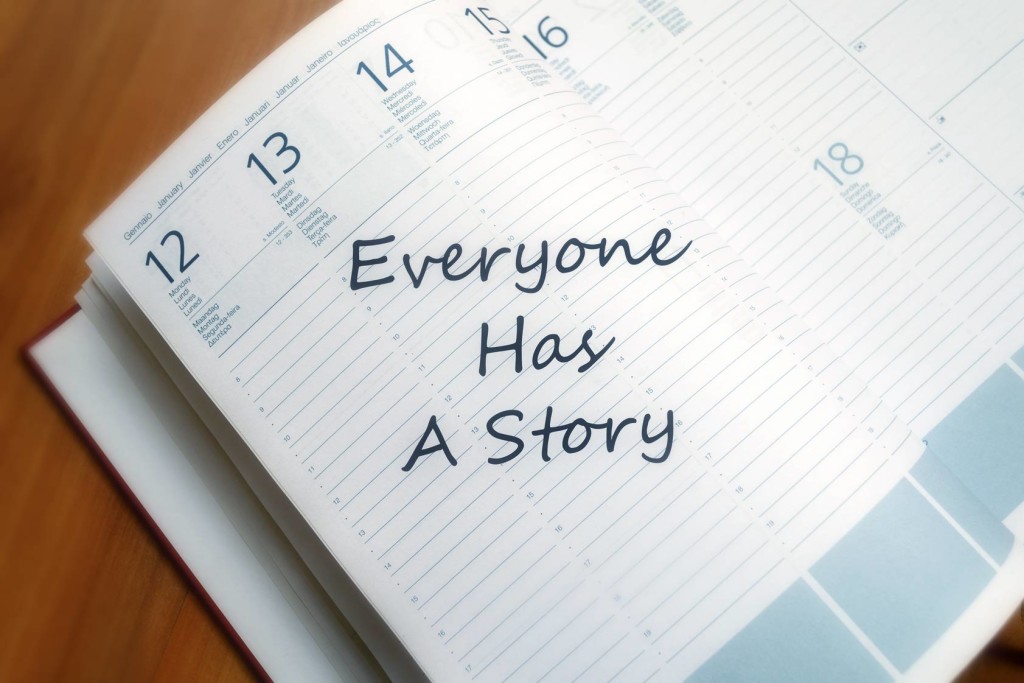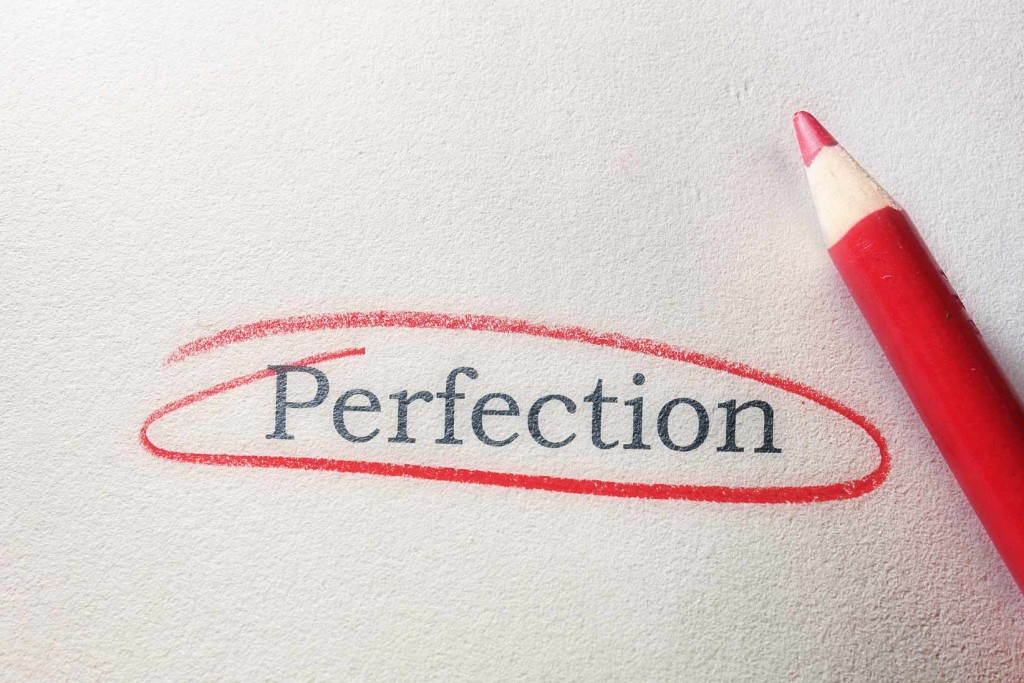10 Ego Traps to Avoid If You Want To Be Happy
We all want to be happy. It’s human nature. But there’s another part of human nature – the ego – that constantly sabotages our happiness at every turn.
If we let it.
In order to be happy, we have to learn how the ego operates. We need to identify those destructive thought patterns that keep popping up, poisoning our lives with needless misery and stress.
In this article I’m going to point out some of the ego’s most common (and cunning) thought traps, so that you can become aware of them in your own life, in your own mind.
Becoming aware is the first step to freedom.
Once you can spot the ego’s tricks, you can learn to avoid them. Instead of falling into the trap, and an emotional downward spiral, you can shift your focus, and direct your thoughts in a healthy and positive way.
1. Worrying About What Others Think Of You
Human beings are social creatures. We derive our sense of purpose, place and identity from our family, our culture, and the people around us. You can see this clearly in high school kids, and their struggle to fit in, to be “cool.”
This is a normal stage of growth and development – but if it continues into adulthood, it becomes a problem.
If you base your decisions on what others think of you, or expect of you, then you are not really living your own life. You’ll spend all your time and energy trying to please someone else – your friends and coworkers, your parents, your partner or potential partners.
Eventually, you lose sight of what you really want. You lose touch with your inner sense of purpose, your dreams and desires, and the life you truly long for. You wake up one day full of regret, realizing that you’ve wasted years of your life pretending to be someone you’re not.
If you want to be happy, forget what other people think. Let your life be guided by your inner compass, your passions and convictions. Let everything you do be an expression of your unique spirit.
2. Comparing Yourself to Others
Another thing that keeps us from being happy with who we are, and what we have, is comparing ourselves to others. We measure our success against what others have achieved. We judge ourselves and our lives based on our flawed perception of the people around us.
Often we don’t measure up to what we see.
This is especially true in the age of social media, when you’re bombarded daily with smiling pictures and status updates from friends on vacation in some exotic locale. You feel like a failure, because your life seems boring and dull in comparison.
But we must remember that we don’t see or know the whole picture. We all have our ups and downs. Most people only share the good moments, blissful snapshots taken from a life that is just as complicated and difficult as yours.
It can be healthy and beneficial to have heroes or role models, and strive to develop in yourself the qualities that you admire in them. But it isn’t fair for a budding young artist to demand from themselves the same perfection that they see in the work of a seasoned master.
In the end, there is only one way to measure your life. And that is this: are you doing your best? At the end of each day, look back and ask, “Did I give my all today? Did I do everything I could to accomplish my goals, and to be the kind of person I want to be?”
If the answer is yes, then congratulations! You win. No one can ask any more, or do any better than that.
3. Living in the Past
The ego loves to dwell in the past. This can take many forms, like obsessing over past hurts, beating ourselves up for something we did (or failed to do), or just reminiscing over “the good old days.”
Every single one of us has been cheated, or taken advantage of. We have all made mistakes. We have been hurt, and we have hurt others, and these experiences leave their mark upon us. We carry them with us, and they shape and influence who we are.
But that doesn’t mean that we have to relive the past, over and over again. You don’t have to be consumed by grief and anger, grudges and regrets, it’s impossible to enjoy the present moment, and all the beauty and opportunity each day has to offer.
In extreme cases, like PTSD, it can require professional help (therapy, medication, support groups, etc.) to break free from this cycle. But for most of us, it’s simply a matter of shifting our thinking, and choosing to focus our attention on the present moment.
Forgive those who have hurt you. Forgive yourself, for your failures and mistakes. Practice meditation and mindfulness. You can’t change the past, but you can find happiness here and now.
4. Being Preoccupied with the Future
Most of us spend a lot of time looking forward to tomorrow. When we worry and fret, plan and prepare for things that haven’t happened yet, we miss so much of what is happening right now, under our noses.
Worrying is the worst of all. It’s a complete waste of time and energy! Why suffer today for something that might happen tomorrow? The truth is, most things we worry about never happen at all. And even when they do, it’s usually not as bad as we feared it would be.
Even normal like retirement planning or career goals can get out of hand. We forget to enjoy today, because we’re so focused on the future. We sacrifice our relationships with friends, family, even our own health, in order to “succeed.”
We think we’ll get to enjoy it some day – but some day never comes.
Then, on our deathbed, we’re filled with regret. We wish we had spent more time with our loved ones, more time being outdoors, more time reading, dancing, learning, and enjoying life.
Don’t let that happen to you. Tomorrow is not guaranteed, so live for today. Make time to do what you love, with the ones you love – no excuses. Be present, here and now. Enjoy each moment.
5. Chasing After Wealth & Material Possessions
Since the invention of TV, we’ve been flooded with commercials and advertising designed to make us crave stuff. We’ve been sold a belief system that says happiness is to be had through money, fame, fine clothes, fast cars, sprawling mansions, and so on ad nauseum.
But it’s a lie.
No amount of money will ever make you happy. Driving a new Mercedes or having the latest gadget might be exciting for a moment, but that feeling doesn’t last. And pretty soon you’re left wanting something else to fill the void, another shiny new toy, the next big thing.
And it never ends. You can never get enough. The ego will always want more, more, more – like an addict always looking for the next fix. And as long as you buy into this lie, you’ll never know real happiness.
Forget about getting rich, and accumulating stuff. Seek after the things that add real value to your life: health, wisdom, personal growth, family, friends, love and connection.
These are the things that bring true happiness.
6. The Need To Be Right, or In Control
The ego can’t stand to be proven wrong. It cannot stand to feel weak or vulnerable. Your ego will argue, lie and fight tooth and nail to prove itself right, to stay in control.
The problem is, the ego is never really in control. And it perceives everything through the distorted lens of it’s own self-interest – so it’s never actually right about anything either. This creates a state of denial, never ending struggle, and constant stress and tension that destroys any possibility of peace and happiness.
In order to be happy, we must learn to be humble.
We must learn to admit when we’re wrong, or when we just don’t know. We must learn to surrender and let go of control. This is how we stay open to new things, to continue to learn and grow. This is how we stay loose, relaxed, creative, playful and spontaneous.
It’s how we have fun, and be happy.
7. The Need For Security
Picture this:
You have the perfect job, a cozy house, a loving partner. Everything in your life is finally going well, and you feel like you’ve got it made. Then boom. The economy collapses. You get laid off. You get sick, or depressed. Your relationship falls apart. You have to sell your house.
Change happens. You have to start all over again.
The ego craves a sense of security, a sense of permanence — but there is no such thing. Life is a constant series of changes. We are always dealing with unexpected challenges, difficulties, loss, upheaval. Nothing lasts forever. Life is about letting go, and flowing with the changes.
So give up the idea that you will ever “have it made,” that one day your troubles will be over. They won’t. You have to make the best of whatever happens. You have to find your happiness in this moment, no matter how messy and imperfect it may be.
Because this moment is your life.
8. Boredom
In addition to craving safety and security, the ego also craves drama, action, even danger (these kind of paradoxical, contradictory desires are why the ego can never know true peace and happiness). Without something exciting going on, it gets bored and restless.
We all know someone who thrives on chaos: the neighborhood gossip, who loves to stir up trouble. Or the co-dependent, who bounces from one crazy, abusive partner to the next. Without drama, action, fights and arguments, they don’t know what to do with themselves.
Don’t be that someone.
Boredom is a sure sign of ego-consciousness. You don’t need to be active, engaged and entertained all the time. You don’t even want to, not really. That’s just the ego’s way of distracting you from the present moment.
Whenever you feel boredom setting in, shift your thinking. Take a deep breath and relax. Become aware of your body, your environment. Observe the people, plants, and animals around you. Watch your own mind. The whole universe is dancing, a vast cosmic ballet.
There is so much more happening than we normally realize. How could we ever be bored?
9. Expecting Perfection
Few things cause more unhappiness than our own expectations. If you expect a brand new Porsche for your birthday, and you get a gift card to Applebee’s, you’re going to be disappointed.
If you don’t expect anything at all, that gift card might just make your day. “Wow, free dinner! That’s awesome.” The outer circumstances are exactly the same. Whether we see them as good or bad depends on our expectations.
That’s an extreme example, but it illustrates something that we all do every single day.
We expect perfection from our partners, children, employees and friends – and we get upset when they don’t deliver. We expect perfection from ourselves, then beat ourselves up for falling short. We expect life to flow along smoothly and perfectly, and we get frustrated when there’s a traffic jam, a flat tire, or whatever.
But that’s life. These things happen all the time. The good news is that you don’t have to be stressed out all the time. Learn to let go of your expectations, and take life as it comes. You’ll be a lot happier for it.
10. Focusing on What’s Wrong
Perhaps the biggest cause of human misery is our tendency to focus on what’s wrong, instead of what’s right. We look at ourselves, at others, at life in general, and see only the negative.
Allow me to illustrate…
Imagine you’re vacationing in a tropical paradise. No work, no worries. You’ve just finished swimming and you’ve found the perfect place to relax and soak up the sun, right next to a little beach-side bar. You order yourself a nice, cold drink…
And the waiter comes back with the wrong order.
No big deal, right? Of course it isn’t. But some people (we’ve all seen it) lose their minds in this situation. They suddenly forget all about the perfection that surrounds them, and see only the negative. They get angry, complain, treat the waiter like garbage… all over a simple mistake.
Again, this is an extreme example – but we all do the same thing every day. We get so caught up in what’s wrong, in the minor details of our private struggles, that we forget the beauty and abundance that surrounds all the time.
If you want to be happy, shift your focus. Stop pointing out what’s wrong in your life, and start counting your blessings. Remember what a miracle it is to be alive and breathing.
Focus on all that you have to be grateful for.
Don’t let your ego run the show. Avoid these common traps that steal your happiness. Change your state of mind, and you can change your life.













Marc Carey
Humans don’t learn from mistakes. They learn from emotions.
You need life problems so you can feel and learn the emotions so you can make wiser decisions in life & business.
This is why I think 90% of students are to young for uni, they haven’t learnt all the emotions in life to make the right decision.
Hope this helps.
Disclaimer. All views are my own.
zenful
Marc, I think you bring up a great point that is often under-looked.
Having a high emotional IQ is sometimes as beneficial as having a high IQ.
You need to be able to navigate through life’s specific obstacles to utilize your intellect and talent. It’s something you learn as you get a bit older. Thanks for sharing.
Marc Carey
Too young*